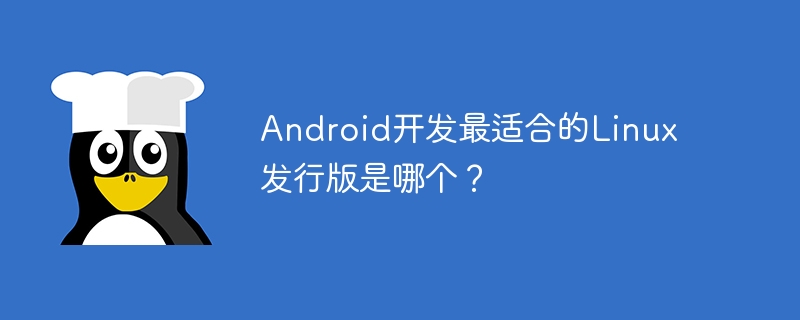

Android development is a busy and exciting job, and it is particularly important to choose a suitable Linux distribution for development. Among the many Linux distributions, which one is most suitable for Android development? This article will explore this issue from several aspects and give specific code examples.
First of all, let’s take a look at several currently popular Linux distributions: Ubuntu, Fedora, Debian, CentOS, etc. They all have their own advantages and characteristics. For Android development, important factors include system stability, ease of use, software package support, and compatibility of development tools.
Among these factors, I personally think that the most suitable Linux distribution for Android development is Ubuntu. As a popular and stable distribution, Ubuntu has a huge software library and strong community support, which makes Android development on Ubuntu more convenient and smooth. In addition, Ubuntu's user interface is friendly and suitable for beginners to get started quickly.
Next, let’s take a look at specific code examples for Android development on Ubuntu. First, we need to install Java Development Kit (JDK) and Android Studio. These two tools are the basis for Android development. The command to install JDK on Ubuntu is as follows:
sudo apt update sudo apt install openjdk-11-jdk
To install Android Studio, you need to download the latest version of the Android Studio installation package first, then decompress and run the installation script to install. After the installation is complete, you can start Android Studio through the command line:
~/android-studio/bin/studio.sh
Next, we can create a new Android project and write a simple Hello World application. Create a new blank project in Android Studio, and then write the following code in the MainActivity.java file:
package com.example.helloworld;
import android.os.Bundle;
import androidx.appcompat.app.AppCompatActivity;
import android.widget.TextView;
public class MainActivity extends AppCompatActivity {
@Override
protected void onCreate(Bundle savedInstanceState) {
super.onCreate(savedInstanceState);
TextView textView = new TextView(this);
textView.setText("Hello World!");
setContentView(textView);
}
}Finally, we can deploy this application to the emulator through Android Studio Or test on a real device. Click the Run button in Android Studio and select the target device to install and run the application.
To sum up, Ubuntu, as a popular and stable Linux distribution, is one of the most suitable choices for Android development. Through the specific code examples given in this article, I believe readers can successfully develop Android on Ubuntu and develop their own applications. I hope this article can help readers who are interested in Android development.
The above is the detailed content of Which Linux distribution is best for Android development?. For more information, please follow other related articles on the PHP Chinese website!